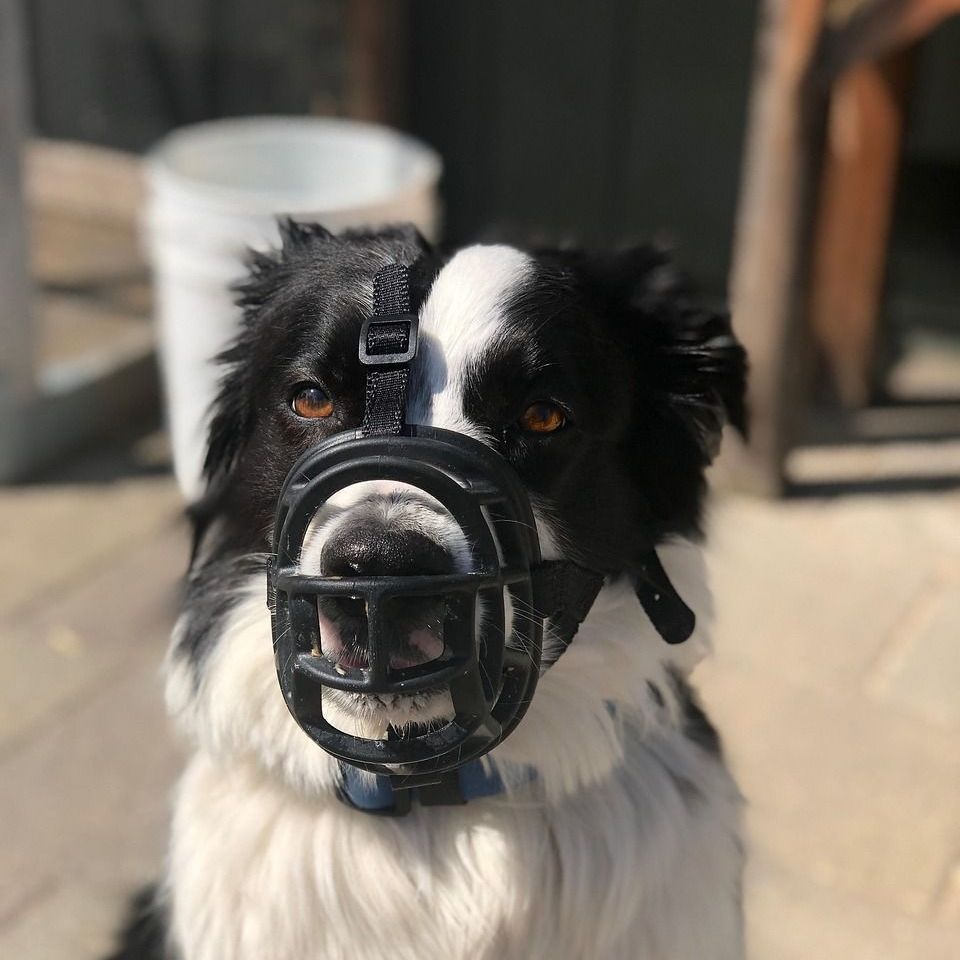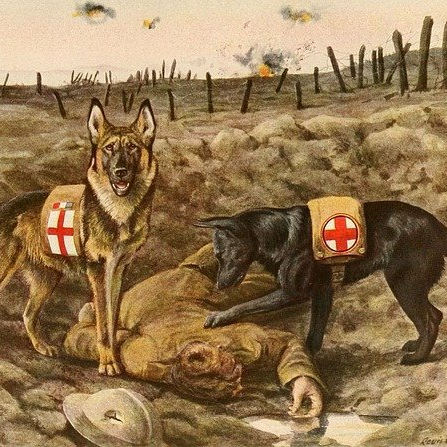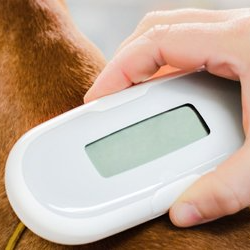Castration "Implants" - what is it all about?

What is "Castration" and why is it performed?
Castration is generally used as the term for the (permanent) surgical removal of the male gonads (the testicles) and is usually performed for behavioural modification of entire male dogs.
Around puberty (this can be from 5-6m old onwards) the male hormone testosterone can be responsible for quite a few undesirable traits in male dogs, including:
- Hypersexual behaviour such as "leg humping", mounting other dogs, urine marking, masturbation type behaviour etc
- Competitive type behaviour with regarding other dogs - particular other entire male dogs.
- Possibly more tendency for conflict episodes with other dogs
- Increased chance of roaming (to seek out mates) and this can mean escaping from gardens, running of from walks etc. It is noticed that entire male dogs tend to be involved in more car accidents as they are often out when/where they shouldn't be!
- In some animals, it is possible that the testosterone can speed up an aggressive response, and delay the return to the normal calm state
Castration is usually done to try and reduce/prevent some of these traits. It has been shown that reducing testosterone levels can reduced inter-male aggression by up to 60%.
Is the castration permanent?
Very simply - surgical castration obviously is! We usually find that after the surgery, testosterone levels drop quite quickly over 3-6w and people often notice positive changes shortly after the surgery.
Are people happy with the outcome?
Overwhelmingly, we get very positive feedback from owners that have had their dogs castrated as they feel that the benefits to the dog and human relationship are dramatic.

Are there any circumstances where you do NOT recommend castration?
Potentially there is. If you have a male dog and you are not having any of the problems defined in the first section, then there is often no specific need to have your dog castrated! Many male dogs do not exhibit these types of unwanted behaviours and so these really do not "need" to be done. There are some possible health benefits from not being castrated, although these have to be balanced by looking at those health benefits that do occur by being castrated. For example, with an entire dog, there is a reduced chance of getting prostate cancer, but an increased risk of developing a condition called BPH (Benign Prostatic Hyperplasia) that can be equally troublesome! These are things we suggest discussing with your vet.
There is also some discussion nowadays about whether castrating dogs with some nervous/anxiety/confidence problems can actually make matters worse. It is interesting to note that there is still a lot of debate amongst behavioural specialists as to how much significance castration actually has on these types of problems. It is generally widely accepted that "more research" is needed before hard and fast conclustions can be made.
What about the "non-surgical" implant?
There is now a implant containing Deslorelin, which is a hormone that effectively reduces the levels of circulating testosterone. It is a form of non-surgical castration. There are two types of implants, a 4.7mg implant that lasts around 6 months, and a 9.4mg implant that lasts around 12 months.
These implants are injected under the skin just like a microchip via a wide bore needle. The injection can sting a little and so we do tend to pop a muzzle on the dogs and try and distract them with some treats whilst we do it. It usually is done just in a normal consultation and only takes a few seconds to do.
The effect of the Deslorelin implant pretty much exactly mimics the effects of surgical castration whilst only being a temporary intervention. The benefit of this is that you can "test the water" of how your dog may behave should he be castrated.
This approach is popular for those owners who are uncertain if the surgical castration is the right option for their dog - the main advantage being that if you don't like the results, the effects will self-reverse after 6-12m (depending on the size of implant used.)
It is a suitable alternative in the long-term?
Whilst in theory it is perfectly safe to use this as a long term and repeatable alternative to surgical castration, we generally do not recommend it based mainly on cost.
At time of writing (March 2022) the cost of the implants are £126.43 and £240.28 for the two different sizes. This would need to be repeated every 6 or 12 months, whereas the surgical cost of castration is between £165 and £240 (depending on the size of your dog). So it is obviously a most cost effective option to undergo the surgical option if you are considering neutering in the long-term.
This choice is obviously down to the owner, and there has been some circumstances where long-term implant use has been recommended - such as in patients whom surgery may to deemed too risky for example.

How do you suggest I proceed if I have concerns about castration for my dog?
If you are uncertain as to whether castration is the right path for your dog, or you are having behavioural issues then we suggest the following:
- These dogs should undergo a behaviour assessment before any further action is taken.
- Assess if it is felt that behaviour is being influenced by circulating testosterone.
- Could there be other causes for the behaviour?
If it is felt that circulating testosterone is likely to be influencing the behaviour, then surgical castration may well be considered as part of the treatment plan.
For dogs where the likely behavioural effect of neutering is not clear or uncertain (particularly where there is a risk that castration may exacerbate any traits) then we suggest:
- Management and behavioural modification first
- Consider using the non-permanent implant first as the effects are not permanent and reversible if undesirable effects are seen.
Interestingly, with most of our cases recently where owners have tried the implant first as they are uncertain of the response, have been pleased with the effect and have reported an overwhelmingly positive result. We also hear that owners have felt reassured after the implant that they know how their pet will respond to the surgical/permanent procedure.
How do I go ahead arranging an implant?
If you want to go ahead with the implant and have had the behaviour advice that you require, then we suggest that you phone and book a normal appointment with the vet. We have had recently some supply issues with the medication and so we suggest that we actually order you one in specifically (if we haven't got one in stock) and then only book the appointment once it has arrived. Please talk to reception or our nursing team for more information.
If you have any concerns, or want to ask more questions then please book and appointment with any of our vets or nurses and we are happy to discuss things further with you.











